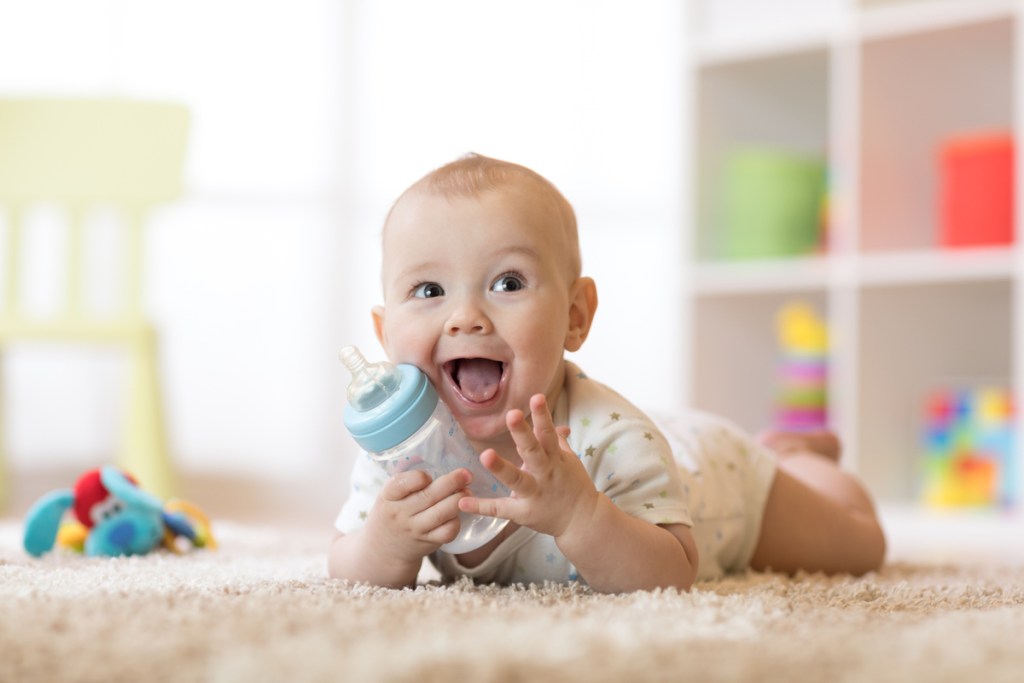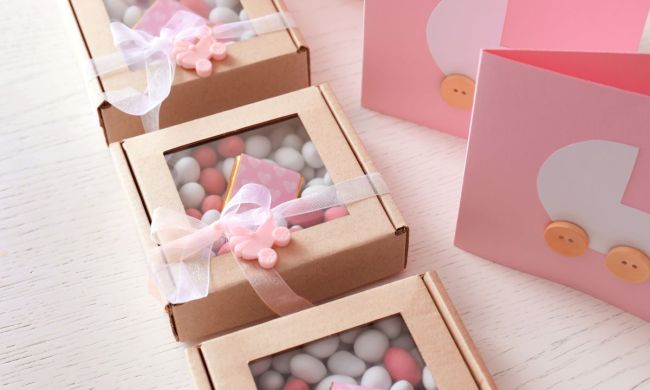When it comes to feeding your baby, you might be wondering, glass vs. plastic baby bottles: which is better? One might be better when it comes to safety and another when it comes to convenience, but on all counts, they each have their pros and cons. Different doctors recommend different things, though many would say either option is fine. In the end, it’s a personal choice about which is better, and this overview will help you figure out that answer for you.

Pros of plastic baby bottles
- Lightweight – convenient for you, easier for travel, possible for baby to hold their own bottle
- Cheaper – more affordable
- Virtually unbreakable – not a problem if it falls and will likely last longer
- More readily available – easier to find
Cons of plastic baby bottles
- Risk of microplastics in milk
- Cleaning with hot water may warp the bottle or release chemicals
- Micro-scratches in the plastic can create areas friendly to bacteria
Pros of glass baby bottles
- No risk of microplastics or plastic chemicals
- No risk of warping
- Can safely clean in the dishwasher
Cons of glass baby bottles
- Heavier – inconvenient for travel and likely impossible for baby to hold on their own
- Breakable – a serious danger if it falls and shatters
- More expensive
- Not as common to find to buy

Which is safer?
While some parents opt for glass bottles for health and safety reasons because of the chemicals in plastics, shattering glass is a hazard that also needs to be considered when weighing which option is safer. Glass bottles are made out a relatively think glass that won’t necessarily instantly shatter if dropped, but the risk if that does happen is concerning since the glass shards could spray upwards and hit the baby.
The safety of plastic baby bottles is regulated by the Food and Drug Administration and they must contain no BPA. Still, we don’t necessarily know all of the long-term effects of every chemical used to make bottles, or how much might leech out into milk. A study published in October 2020 in Nature Food showed that microplastics are in fact released from plastic baby bottles over time, but more studies are needed. We also don’t know that these microplastics are harmful in any noticeable way. One of the study authors, Professor John Boland, put it this way: “There is no evidence of any adverse outcomes from exposure to these plastics, [but] if you’re super concerned about it, then you should use glass bottles.”
Feeding your baby milk from a bottle isn’t a high-risk activity no matter which type of bottle you use, so don’t stress too much about the decision. There are certainly pros and cons to each and it’s just a matter of your comfort level with the different low risks associated with each.
Which is more convenient?
Plastic bottles are likely the more convenient option. While glass bottles are dishwasher-safe, plastic bottles often are, too. The risk of microplastics or chemicals being released when washing does exist for plastic bottles but the risk of harming your baby is low. Plastic bottles are easier to feed with, easier for your baby to eventually hold on their own, and easier to transport in a diaper bag or when traveling.
While glass bottles might bring very heavy and cumbersome products to mind, many major bottle brands do make glass versions with a plastic holder around them for gripping, helping to make them more convenient. It’s worth looking to see if what you’re looking for is on the market.
Glass vs. plastic baby bottles: which is better?
Plastic bottles are a go-to for a reason and will likely serve you just fine. If the idea of chemicals and microplastics stresses you out, glass bottles are also fine. As you can see in the pros and cons list above, there are multiple factors to consider and one element might matter to you more than another. In the end, what works for you is a personal choice.
Pediatrician William Mudd says “The nutrition your child gets throughout childhood is likely much more important than what kind of bottle you use.” Ultimately, that’s the bigger picture to remember. Just like when choosing breastmilk or formula, both will serve your child to grow, and the pros and cons you consider are a personal choice about what works with your specific lifestyle, beliefs, and baby.



